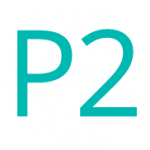Our methodical approach for your corporate commercial success:
Results = ACT P³ SE V²
IN MORE DETAIL
SYSTEMS ENGINEERING

To solve management challenges a holistic view is a prerequisite to distinguish between root cause and interfering effects. Due to our sound interdisciplinary background we combine appropriate scientific-technical with human-centered disciplines and apply Systems Engineering to deliver solutions to complex problems in enterprises.
Systems Engineering ensures that all aspects are considered and integrated into a whole: finding the right solutions and managing complexity.
REQUIREMENTS ENGINEERING

Projects and tasks need reliable specifications, i.e. demands of management, technical and legal issues, functional & non-funtional requirements. Since many years we apply a systematic approach to requirements engineering in order to formulate valid requirements.
This comprises elicitation, formulating, documenting and maintaining of valid requirements. Because checking of requirements and resolving stakeholder conflicts is a crucial activity we trust in verification of all gathered requirements. Together with our clients we evaluate and validate them before taking any actions.
On the basis of verified requirements we deliver also metrics how to accept them in terms of legal and commercial aspects. This systematic approach implies immediate verifiability of all requirements aimed at resilient, i.e. complete and high-quality specifications without any contradictions.
CHANGE-REQUEST MANAGEMENT

Since the Greek philosopher Heraclitus of Ephesus it is known, that change is being central to the universe: “the only constant is change” perfectly reflects therefore the dynamics of modern business environments. Change-Requests (CR) may be named different, but describe essentially the urgent need to deliver an adjustment. A CR is mostly declarative, therefore it states WHAT needs to be accomplished, but leaves out HOW the change should be carried out.
Considering business demands from senior management, but also including new requirements from clients, features and functions, operational constraints (production), regulatory demands (legal) and technical enhancements we face constantly changing specifications. It is always crucial to an project organization to deliver changes “in time, in quality and given budget”.
Due to our sophisticated and clearly defined CR management process we face challenges during project work and main goals are to support impact, cost, technical feasibility, traceability and verification of change-requests.
TECHNICAL DUE DILIGENCE

We undertake a technical due diligence (TDD) process to ensure technical risks are known and managed in order to identify and assess business risks.
The due diligence process can be divided into several areas according to client´s needs, e.g. audits of production, processes, systems, organization, management, as well as technical and intangible assets (i.e. intellectual property, know-how, best practice).
We have automated the technical due diligence in order to identify relevant information, data models and processes in advance and to use them as a basis for technical solutions and the digital transformation of processes.
We apply TDD with the goal to assess e.g. technical state of systems, production plants, equipments technical condition or status of projects and product lines. Doing so we are able to deliver the financial impacts of technical assets on business value.
SEND US A MESSAGE
looking forward to hearing from you

PORTFOLIO MANAGEMENT
Portfolio management is an important instrument applied to products, services, applications and projects in order to improve the enterprise value.
For this a SWOT-analysis is a prerequisite, i.e. to analyze the strengths, weaknesses, opportunities and threats of each portfolio element.
We analyze and manage chosen portfolio elements based on numerous key characteristics to optimize the portfolio by maximizing the delivered business value.

PROGRAM MANAGEMENT
We apply program management on a strategic management level including a set of metrics to indicate progress of the program. By this we deliver long term improvements to enterprise performance.
We help decision-takers to define, coordinate, control and run the RIGHT projects, to achieve their strategic business goals. Therefore we utilize a suitable program management approach derived from business demands.
Due to our advanced experience and skills we also verify and validate (V&V) the program: i.e. doing the right projects & doing the projects right.

PROJECT MANAGEMENT
We utilize a systematic approach for project management which reduces risks of planning and executing of all work packages and their derivables.
This is achieved by rigorously checking all planning information and complete visualization of the results, dependencies and possible impacts.
This systematic approach implies immediate verifiability and helpful guidance of the project team members. Management reporting is therefore based on clear facts and steering board is able to decide data-driven.
CLIENTS & TESTIMONIALS
what clients say about us

VERIFICATION & VALIDATION
We apply verification & validation (V&V) as independent procedures to check whether products or services, processes and roles, or even systems meet the requirements of clients and furthermore that they fulfill their intended purposes.
We achieve this by systematical use of an automated V&V process to identify relevant information in advance and use it as a basis for technical solutions.
Our software-supported approach uses fully automated metrics-based methods for verification & validation (V&V) based on meta-models along the operational value chains and makes the results available in a transparent and validated repository.
POWERFUL METHODS
interdisciplinarily applied
Through our systematic approach we are committed to the introduction of processes suited and customized to the needs of our clients, not only providing increase in quality, efficiency and productivity, but also measuring it:









